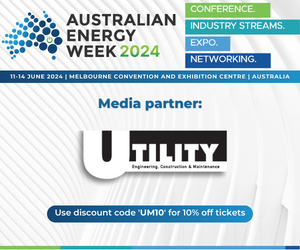by Lauren DeLorenzo, Journalist, Utility magazine
Although moving into a residential building with an embedded network offers convenience, it can also mean higher energy prices and less consumer protection. With more Victorians than ever living in embedded networks, the Victorian Government is implementing a ban on these networks in new residential apartment buildings to ensure competitive prices and fair access for residents.
Embedded networks are privately owned and managed energy networks which run separately from the National Energy Market and provide services to multiple customers within one building, such as an apartment building or retirement village.
These networks allow owners to buy electricity in bulk and resell the power to residents. This bulk buying should mean savings get passed on to residents, however a government review found that this is often not the case, and that there is a need to improve consumer protections for those living in these networks.
The incremental ban aims to provide customers with lower energy prices, increased consumer protections and the option to choose their energy provider, with an exemption for buildings which use renewable energy microgrids to deliver low-cost renewable energy.
Key concerns
An expert panel, assembled by the Victorian Government, called for feedback from stakeholder groups about the implementation of the ban.
The panel received 133 submissions from embedded network customers, consumer representatives, embedded network providers, energy retailers, consultants and other invested parties. This included submissions from 88 individual consumers, seven consumer advocacy groups, 26 industry stakeholders and 12 others (local governments, research institutes and consultants).
Based on evidence from submissions, the panel concluded that customers living in embedded networks may not have all the same consumer protections as on-market customers. This could include lower standards for disconnections and for life support arrangements, as well as varying access to dispute resolution services.
The panel also concluded that these customers did not have the same access to rebates and concessions as on- market customers, and that there was a lack of transparency around pricing due to bundled services (for example, bundling hot water and gas services).
Other issues raised included:
• A lack of choice for customers to access renewable energy sources
• Barriers to access competitive retail offers, such as the cost to install a new meter
• Difficulties accessing concessions
Two virtual webinars were held in February 2021 to discuss feedback from stakeholders. Feedback from these groups found that among consumers, there was a high level of support for the ban.
Leading up to the ban
In 2017, the Victorian Department of Environment, Land, Water and Planning conducted a review of the state’s General Exemption Order (GEO), which determines the energy suppliers that require a license to operate.
Embedded networks are exempt from this licence requirement, but a number of changes have since been put in place to support embedded network customers. These changes include providing access to free and independent dispute resolution services through the Energy and Water Ombudsman for some customers.
Another change included setting the Victorian Default Offer (VDO) as the maximum price cap, allowing residents to access more equal energy prices. Although this change limited how much customers can be charged, the VDO does not apply to all customers in embedded networks.
In October 2018, the Victorian Government announced its commitment to ban embedded networks in new residential apartment buildings entirely, to provide further customer protections.
The government assembled a panel to lead a review of these networks and to develop recommendations on how to best implement the ban for new buildings. The panel is also developing recommendations on how to extend protections to customers in existing networks.
The review asserted that energy is an essential service, and sought to ensure that any supplier of energy in a private network must obtain a Local Energy Service (LES) provider licence.
The review aimed to create a competitive energy market where energy suppliers made use of renewable and clean energy technologies, passing along benefits to consumers.
In January 2021, the panel released an Issues Paper which detailed the key concerns from consumers and asked for stakeholder input through a consultation period. Two virtual webinar sessions were held in February 2021, before a draft report was released for public consultation.
The draft report set out 16 recommendations on how to implement the ban, which will be finalised in the panel’s final report, expected for release in early 2022.
Short-term recommendations
The panel recommended that the ban is initially implemented by amending the GEO and introducing stronger regulations of embedded networks, leading to an eventual transition to a licensing regime for private networks. Amendments should enable renewable energy options for customers and present them with the choice of a competitive on-market electricity retailer.
This recommendation takes into consideration the significant period of time needed to establish a new licensing framework, as amendments to the GEO can be made more quickly, and are expected to provide stronger short- term consumer protections and benefits.
This approach is constructed to allow suppliers enough time to comply with new regulatory requirements. Under a revised GEO, all residential private networks will need to incorporate clean or renewable energy technologies and show how they provide demonstrable carbon emission reductions.
Private network operators will also need to show that customers are benefiting from these renewable technologies – for example, through reduced energy costs due to on-site energy generation, energy storage, or demand management. Networks that fail to introduce these technologies and show the benefits to consumers will have to discontinue operations.
Existing networks that are not able to retrofit renewable energy technologies to their sites will be able to meet the new requirements by providing a market-sourced renewable energy option to customers, or by removing the private network and changing to individual residences.
Older sites will be given a longer timeframe to make this transition due to challenges in transforming existing sites, and will need to meet the obligations within three years of being granted an exemption.
Under the new recommendations, private network operators would also have to apply for approval from the Essential Services Commission (ESC) to sell energy under the GEO.
Long-term recommendations
Though amendments to the GEO are recommended for the short term, the panel suggests eventually replacing the GEO with an expanded fit-for-purpose licensing framework, which would require any supplier and seller of energy in a private network to obtain an LES licence.
The LES would be a new category of licence which would require private operators to show evidence to the ESC that they are encouraging renewable energy uptake. This recommendation expands the initial microgrid exemption to incentivise other kinds of clean energy innovation.
Energy suppliers that currently operate embedded networks under a retail licence will also have to meet the new GEO regulations. In the long term, the panel recommended that these suppliers would also eventually be required to obtain a separate LES licence.
Expanded protections and access
Though the new licensing framework is eventually expected to offer embedded network customers equal protections under the ESC, the panel recommended strengthening GEO protections in the meantime.
Examples of areas for increased protection include giving customers access to relevant family violence, disconnection and life support protections under the GEO. Under the Victorian Government’s Energy Fairness Plan, the ESC is expected to be given power to increase penalties for energy suppliers who do not comply with new GEO requirements.
Under the new framework, all residential customers will have access to an independent dispute resolution body, the Energy and Water Ombudsman Victoria (EWOV), and will be able to access concessions when paying their energy bills.
Due to the limited oversight on metering requirements for private networks, the data used to determine energy bills may not be entirely accurate. The panel has therefore recommended increased requirements for energy suppliers to ensure that meters comply with standards, along with changes that would make it easier for customers to switch energy retailers if they wanted to.
Amendments to the GEO are recommended to be implemented from mid-2022, with establishment of a licensing framework to follow.
The Embedded Networks Review has been released, click here for Utility’s breakdown.

















